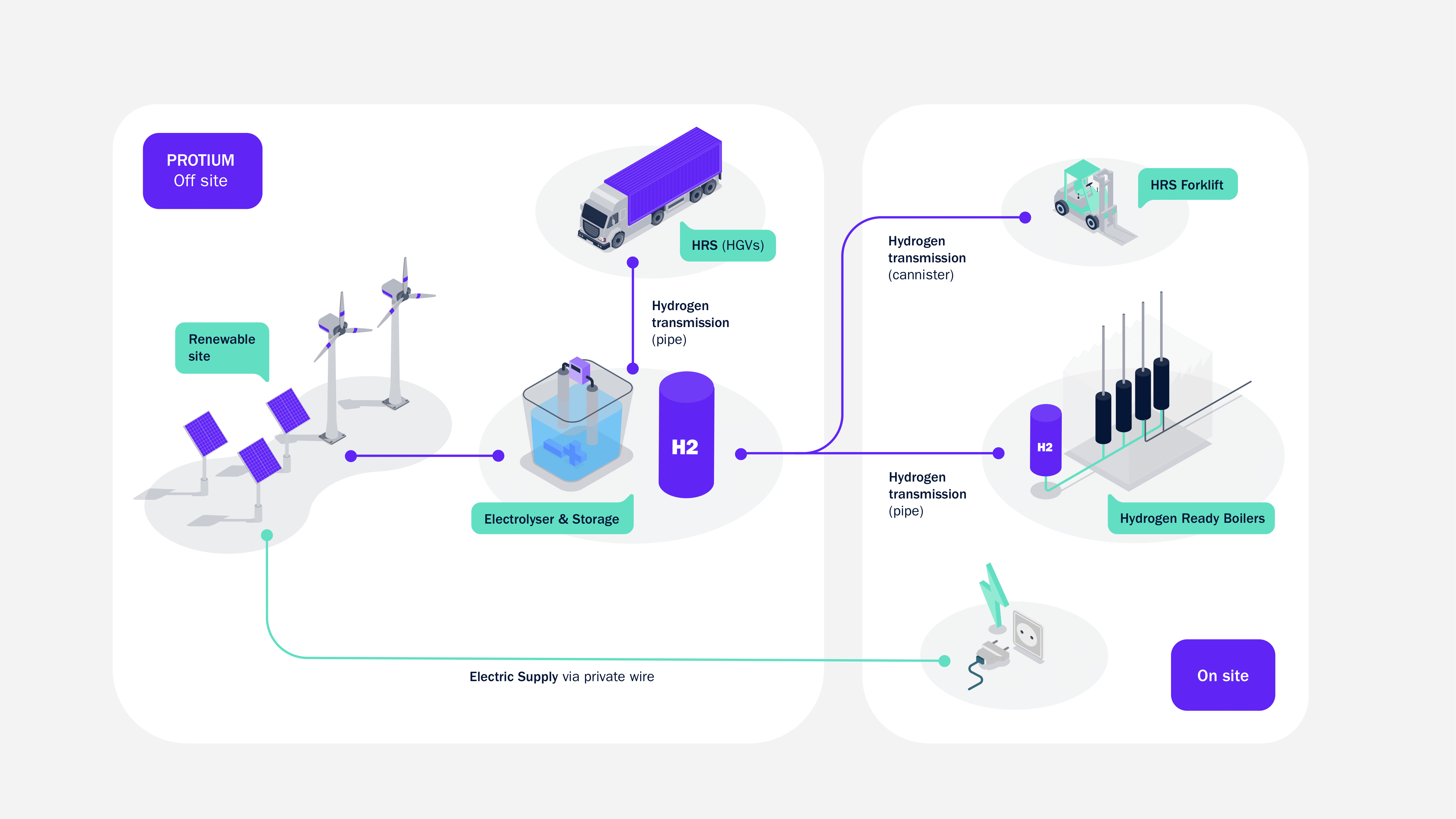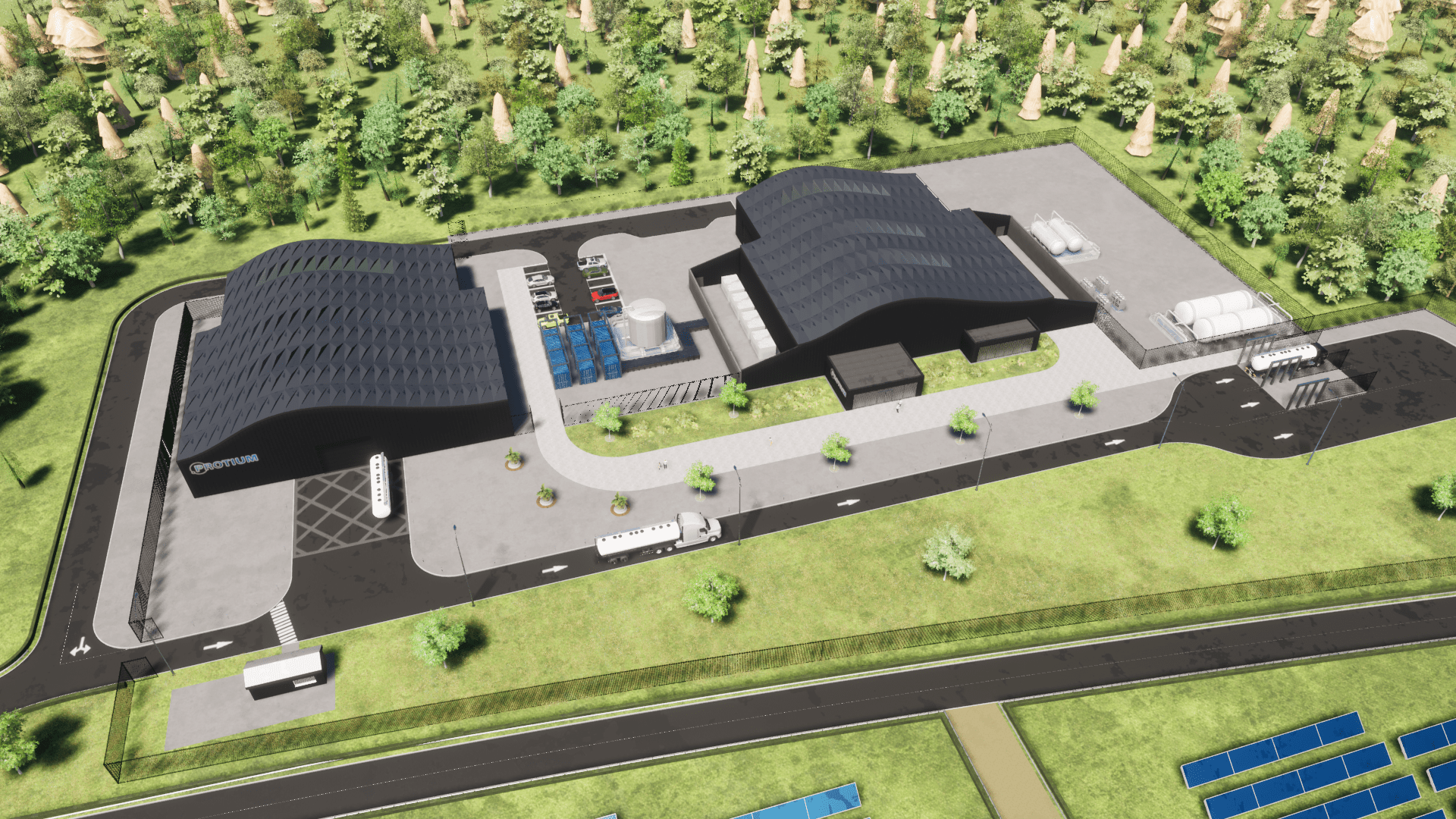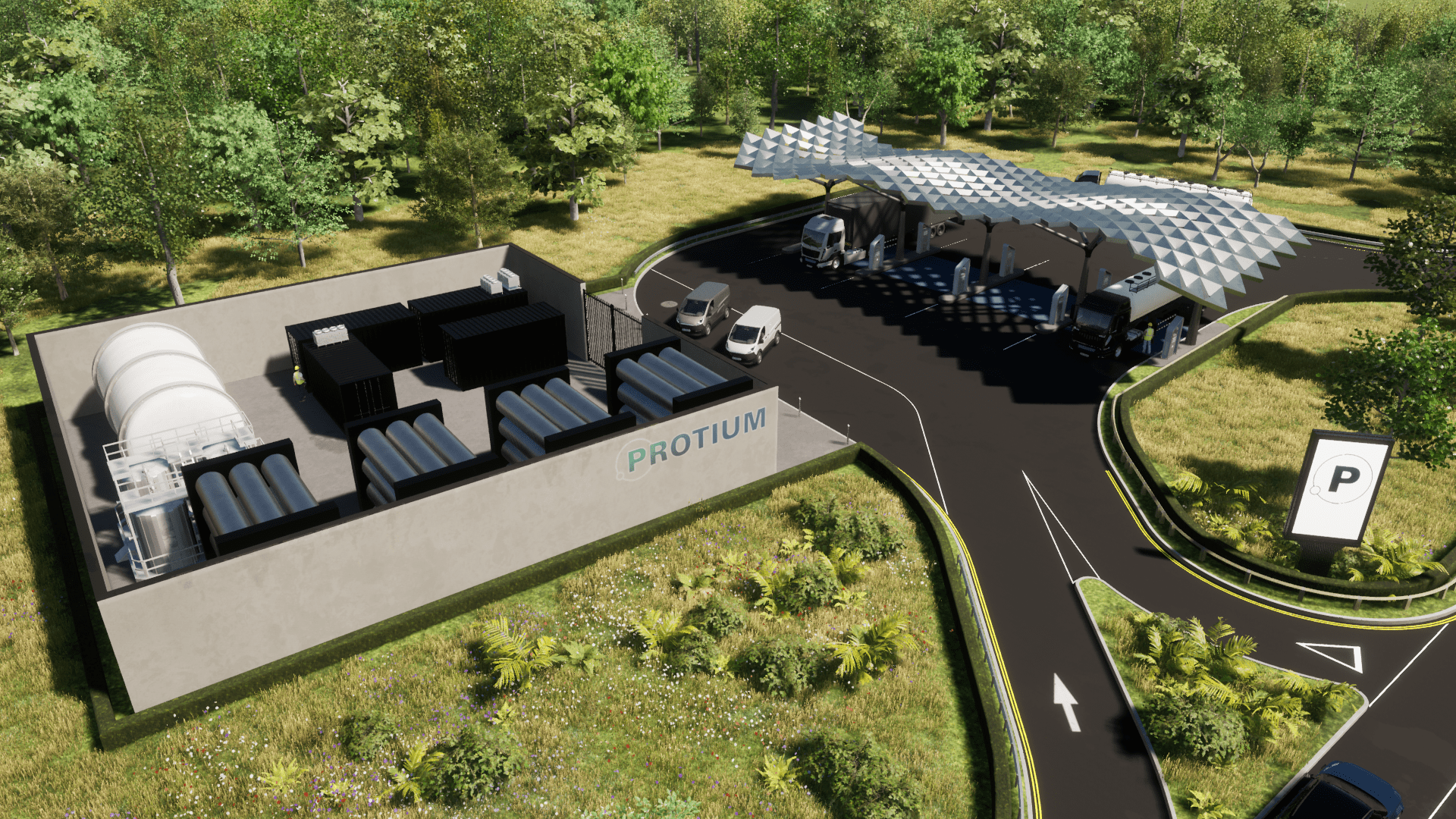Renewable energy provided by wind turbines and solar panels will be fed to the site and connect to the Hydrogen production Facility (HPF). The HPF consists of an electrolyser, which takes the renewable energy to produce hydrogen. Hydrogen is produced by using electricity to break water (H2O) down into its component elements – hydrogen (H2) and oxygen (O2).
Once produced this hydrogen can then be stored on the site ready for use in cannisters by the forklift trucks, or fed directly to the hydrogen ready boilers. A direct pipeline will also supply hydrogen ready HGVs.
The diagram below shows an overview of how the process would work at the site.

We are proposing to build a new Electrolyser as part of these proposals. This Electrolyser will use renewable electricity to create the hydrogen by breaking down water into its component elements. The hydrogen will then be produced, stored, and transported to the brewery and Hydrogen Refuelling site for use in HGV’s and forklift trucks. Please not that the CGI image below is purely for indicative purposes at this stage.

Once produced at the Electrolyser site, some of the hydrogen is then transported to the Hydrogen Refuelling site, which stores the hydrogen until its used to refuel HGVs or forklift trucks. As the CGI image shows, this works on a similar concept to petrol stations, with vehicles driving up to the refuelling points, refuelling, and the driving off again. Please not that the CGI image below is purely for indicative purposes at this stage.

There are a number of reasons why the project is seeking to use hydrogen and not just green energy, but the primary reason is that hydrogen is so flexible. It can provide the solution to numerous energy questions, which is a great benefit for a facility such as this.
Hydrogen is an exciting opportunity as it offers a flexible cross-use net zero solution to our energy needs - and it is the most abundant element in the universe. There are zero greenhouse gas emissions associated with the hydrogen generation if the energy required for this process originates entirely from renewable sources, such as solar or wind. In this case, the hydrogen is commonly referred to as ‘green’ hydrogen.
To name a few of its specific benefits, hydrogen can power a fleet of vehicles and provide the energy required for large scale industrial processes without the use of fossil fuels (and associated emissions), can be stored for use at any point, and can be easily transferred or exported using existing technology/infrastructure.
Whilst renewable electricity is excellent, there are limitations with factors like storage and timing of power provision (e.g. solar power only during the day, wind energy only whilst its windy, etc). If this renewable energy is used to create hydrogen, which can then be stored and used as required for a whole range of uses, it allows for a much more efficient and flexible operation across numerous core elements of Magor Brewery.
Hydrogen (in common with all transport fuels, like petrol, diesel and LNG) is combustible. However, in a fuel cell lorry, hydrogen is not combusted. Instead an electrochemical process occurs where hydrogen combines with oxygen to create electricity, heat and water.
All fuels have safety considerations that need to be carefully understood and managed. This is as true for hydrogen as it is for petrol, diesel, natural gas and other common fuels we use today. Magor Net Zero’s project partners have a strong commitment to safety and place it as they key imperative in our operational processes.
For this project, the partners are looking to deploy fuel cell electric vehicles (FCEVs) to consume green hydrogen and replace the use of diesel. Fuel Cell Electric Vehicles, in common with electric vehicles, are quiet, they have no exhaust emissions (except water) and they have much higher efficiencies. Several of the worlds largest companies are investing in and developing FCEVs including Toyota, Hyundai, Daimler, Volvo, IVECO and Bosch, while new businesses are also bringing new models to market such as Arcola Energy, Hyzon Motors and Riversimple – a FCEV manufacturer based in Monmouthshire Wales.
A number of hydrogen's properties make it safer to handle and use than the fuels commonly used today. For example, hydrogen is non-toxic. In addition, because hydrogen is much lighter than air, it dissipates rapidly when it is released, allowing for relatively swift dispersal of the fuel in case of a leak.
With a thorough understanding of fuel properties, we can design fuel systems with robust engineering controls and establish guidelines to enable the safe handling and use of Hydrogen.